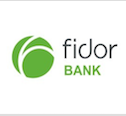Mintos Pursues ECB Banking Licence
- 17.02.2026 01:55 pm
ACI Connetic Accelerates Global Adoption as UK Banks...
- 17.02.2026 01:55 pm
SWIAT Supports Bank of Greece in Simulation of a...
- 17.02.2026 09:25 am
10x Banking and HassemPrag Join Forces to Drive Next-...
- 12.02.2026 09:15 am
Blue Sky Bank Turns to Jack Henry to Drive Innovation...
- 12.02.2026 08:55 am
LHV Bank Doubles Its Deposits and Loans with Profit...
- 10.02.2026 08:50 am
Finora Bank More Than Triples Net Loan Portfolio to €...
- 09.02.2026 08:35 am
Allica Bank Launches Overdraft to Fix £15 Billion SME...
- 09.02.2026 08:25 am
Amplify Credit Union Partners with MANTL To Modernize...
- 06.02.2026 01:55 pm
CommBank Releases Australian-First Report Outlining...
- 06.02.2026 10:05 am
LHV Bank Granted Consumer Credit Permission by the PRA...
- 06.02.2026 09:05 am
myTU and Intrepid Fox Partner to Bring AI Agents to...
- 04.02.2026 09:15 am






















